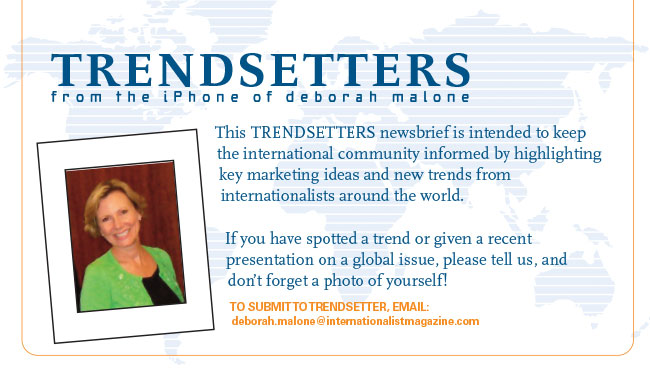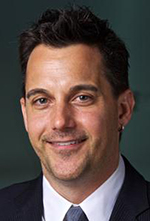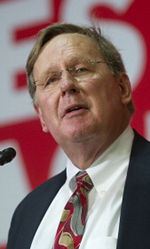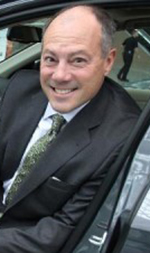

Chris Brandt, Chief Marketing Officer / Taco Bell

Todd Pendleton, Chief Marketing Officer / Samsung Telecommunications America

Chris Fuqua, Vice President, Brand Marketing / Dunkin' Donuts

Rich Seban, President and Chief Operating Officer / Hostess Brands, LLC

Mike Accavitti, Senior Vice President, Automobile Operations / American Honda Motor Company

Elyssa Gray, Director, Head of Creative and Media, NA Marketing / Citigroup, Inc.

Peter McGuinness, Chief Marketing and Brand Officer / Chobani

Craig Dubitsky, Founder and CEO / Hello Products LLC

Ahmet Abaci, Vice President, Brand Marketing / Mizuno USA

Andy Callahan, President, Retail / Hillshire Brands Company
Trendsetters: Top Marketers Discuss Transformation at Brand Masters
Innovation and resilience are among the many hallmarks of enduring brands. However it is the CMOs and marketing leaders who often take the biggest risks when shaping a brand’s evolution or its complete reinvention. Today, brands face the constant need to adapt to consumer lifestyle shifts, to respond to a tech-enabled 365/24/7 world, and to immediately overcome unforeseen obstacles—from natural disasters to viral negative allegations to financial insolvency.
Last week’s ANA Brand Masters Conference, presented by Mashable, brought together leading CMOs and marketing thought leaders to share inspirational approaches to brand building that drive sales, overcome hardship, and better connect with consumers in meaningful ways.
Although a host of extraordinary marketers shared their specific marketing strategies, a broad theme of transformation emerged as being central to business success today. From packaged goods to banking, from quick-service restaurants to cars, from food to smartphones, these lessons of marketing strength and leadership may be easily applied throughout the world—from an iconic local brand to one with global recognition.
Interestingly, two of the marketing leaders who spoke at Brand Masters—Andy Callahan of Hillshire Brands and Chris Fuqua of Dunkin’ Brands—both served as Naval Flight Officers in the United States Navy. They’d add that discipline and a clear structure also make a difference when leading a brand turnaround. Other marketers agreed that discipline was often a next step when brands achieve a certain growth or revenue threshold.
Chris Brandt, Chief Marketing Officer of Taco Bell; Todd Pendleton, Chief Marketing Officer of Samsung Telecommunications America; and Chris Fuqua, Vice President- Brand Marketing of Dunkin' Donuts, all shared their solutions for driving better, more culturally-relevant brands.
For Chris Brandt and Taco Bell it involved a new ethos to “Live Mas” in response to food culture that had shifted, so that customers could begin “buying into Taco Bell,” instead of simply buying quick meals at Taco Bell.
Todd Pendleton admitted that just 3 years ago few would consider Samsung a leading smart phone brand. His job was to make the brand the android leader—as quickly as possible—by connecting with consumers about the benefits of the device. His initiative, “The Next Big Thing is Already Here,” transformed the brand.
Dunkin’ Brands Group is one of the world’s leading franchisors of quick-service restaurants with 17,000 outlets in 60 countries. Chris Fuqua addressed how a 60-year old icon could be more relevant as it adapted to today’s changing consumer without disenfranchising a loyal core.
Others offered moving accounts of overcoming obstacles.
Rich Seban, President and Chief Operating Officer of Hostess Brands, outlined “the saddest day of his life” when Hostess “was left for dead” in late 2012. However, five months later, new ownership organized to resurrect the company, but this nostalgic maker of cakes like Twinkies would need to reach a younger audience to survive and stage a massive comeback.
Mike Accavitti, Senior Vice President of Automobile Operations at Honda explained how one of the most trusted automotive brands for the last 50 years, faced the devastating effects of an earthquake and tsunami in north eastern Japan, overwhelming flooding at a key plant in Thailand, plus negative press on a new model that gained unprecedented attention.
Elyssa Gray, Director/ Head of Creative and Media for North American Marketing at Citigroup, told how the bank had to win back the trust of New York, its top market globally—representing 21% of consumer revenue, after the financial crisis. In response, the Citi Bike launch was an uncharacteristic solution and a bold risk.
Three brand leaders--Peter McGuinness, Chief Marketing and Brand Officer of Chobani; Craig Dubitsky, Founder and CEO of Hello Products; and Ahmet Abaci, Vice President, Brand Marketing of Mizuno—explained how they challenged or questioned the status quo to find a way to grow their new or lesser-known brands.
Greek yogurt maker Chobani is now a well-known success. Greek-style yogurt was far less popular in the US than the rest of the world, and only comprised 2% of the total US yogurt market. Remarkably, Chobani has grown the Greek yogurt sector to 52% in just 6 years—transforming from a new, completely unknown brand to the category leader. As the company has now exceeded USD $1 billion in revenues, Peter McGuinness’ role is to drive the next stage of growth and marketing innovation without losing the brand essence of a humble startup.
Hello Products’ Craig Dubitsky sees design and a “seriously friendly(TM) mantra” as being central to creating brands that connect emotionally and are beautiful to see and use. His venture into oral care has shaken up the category as Hello brands have gone from concept to commercialization in only 6 months to launch in over 20,000 top retail doors.
Ahmet Abaci of Japan’s Mizuno characterizes the company as a small challenger sports brand that has to outsmart, not outspend the competitors. The company’s programs to make the world better through the power and passion of sports is changing the perception of Mizuno and even changing the category.
Some marketers simply face unusual situations, as was the case for Andy Callahan, President of Retail at Hillshire Brands Company. As Hillshire was spun off from Sara Lee, he was challenged with running a USD $4 billion start up that had to embrace its heritage while building a new corporate culture to drive extraordinary growth.
So what advice do these marketers have for their peers?
Taco Bell’s Chris Brandt believes that today’s marketer must be an innovator and a storyteller. He also understands that contemporary brands should shift from marketer to publisher to be relevant in a new media and marketing environment. “People expect to be engaged. A cool brand is like a cool friend; you expect them to introduce you to cool experiences.”
Brandt also admits that “being a TACO”-- the company’s acronym for a Transparent And Collaborative Organization-- was a key factor in breaking down organizational silos that enabled good ideas to become breakthrough ideas. Taco Bell’s success in bringing pop culture to life was the result of “taking the familiar and adding a little twist.” One such example, the Doritos Taco, contributed to revolutionizing the company’s business.
Interestingly, Hillshire’s Andy Callahan believes that organizational change can reinvigorate corporate culture and upgrade employee skills. He underscored that if innovation is just the role of the marketing department, it won’t succeed without broader corporate buy-in. He adds, “Innovation is imperative to our brand building and growth. If the fundamentals aren’t right, though, everything is undermined.”
Callahan cites Hillshire’s IPO as a great stimulus in changing the organization’s DNA. The company also moved from traditional suburban offices to West Loop of Chicago for an open work space that fostered collaborative culture. “It was transformational, and one of the best things we did for our culture as it instilled the values of a more entrepreneurial company.”
Chobani’s Peter McGuinness feels that “HOW” will be the most important word in marketing for the next 10-20 years. He said: “How matters. How tells how the product is made, how it innovates, how it validates its place in the world.” How can be difficult for many brands to answer when they have been more focused on when they were established and what they stand for… instead of how they conduct themselves in all they do.
Samsung’s Todd Pendleton says that “using the voice of the consumer to activate our brands” was at the heart of making Samsung the #1 smartphone provider in the world. He attributes much of that success to being bold and taking changes. “Not everything has to be perfect and planned.”
Pendleton also talked about the Samsung Galaxy’s global collaboration with the early release of JayZ’s Magna Carta album to 1 million Galaxy owners. The immediate downloads not only crashed the server, but changed the rules for platinum album certification. Says Pendleton, “It’s now clear that we’re not just a hardware company. We mean much more to people.”
Citigroup’s Elyssa Gray also underscored how the Citi Bikes program gave New Yorkers something they valued. “We found an unmet need for our customers to better their lives. Our message of ‘Unlock a Bike. Unlock New York,’ resonated with New Yorkers as they shared their Citi Bike adventures on social media. We let the bikes be their brand.”(A higher percentage of New Yorkers than tourists embraced the program.)
When asked if a Citi Bikes initiative would work in other cities, Elyssa Gray emphasized: “This worked in New York as it was tied to a specific business challenge. It may make sense for other markets; however, other solutions may work in those markets. Again, it’s all about the business challenge.”
Honda’s Mike Accavitti overcame extraordinary obstacles by returning the company to the roots of their brands. In the case of Civic, it meant embracing the compact car’s optimistic spirit with a campaign that resonated with young buyers called, “Today is pretty great.” His north star, though, is gauge advertising and marketing success by the bottom line: “Is it ringing at the cash register?”
A final bit of advice from Dunkin’ Brands Chris Fuqua: “Increasingly, we will all be driving decisions using data. Be sure you know all the numbers as well as your CFO.”
